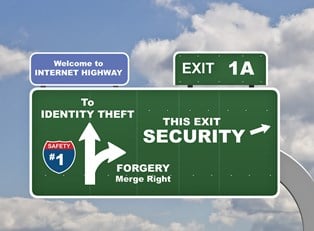Data Breaches Are Happening More and More Often
Companies lose your data all of the time. You remember Target, right? From the previous page? We were talking all about how terrifyingly insightful their data mining is, and how they know your life better than you do. Well, in 2013, they had a massive data breach during the peak of the holiday season. Hackers stole credit and debit card for 40 million customers and got email and mailing addresses for another 70 to 100 million, with overlap in those groups. Bear that in mind -- it's not just the credit card information. Fixing credit card fraud is relatively simple. However, having that information alongside your personal data opens you up to all sorts of nasty identity theft.
And just this year, Home Depot finally reached a settlement regarding their massive data breach in 2014, that wound up compromising the information of over 50 million credit card holders. In some cases, these companies are playing fast and loose with your data. In other cases, they simply don't know what it takes to protect information in the modern world -- and they're finding out the hard way.
Those are high-profile examples, but it's a widespread problem. From 2005 to now, there have been 6,079 data breaches, resulting in the theft of 862,527,023 records. (For comparison, there are only about 323 million people living in the United States right now. That's more than 2.5 records stolen per American citizen.) Other figures claim fewer breaches but even more records being stolen. On average, 32 data records were lost or stolen every single second in 2014.
Did you know...
- When it comes to counterfeiters, North Korea are pros. They have gotten so good at counterfeiting American currency (particularly the $50 and $100 bills) they their fakes are known as "superdollars." They require specialized Federal Reserve equipment to be identified. There are $45 million worth of North Korean fakes…that we know of.
- It's an understatement to say that the odds when playing the lottery are not in your favor. You are statistically three times more likely to die in a car accident while driving 10 miles to buy a lottery ticket than you are to actually win. Even more astounding, over half the tickets in an average lottery draw are bought by only 5% of the participants.
- Have you ever wondered who prints the most money? That would be Hasbro, as in the makers of Monopoly. Hasbro prints more Monopoly money in a given year than there is money in the entire world. Each set of the game comes with $20,580. Bet you didn’t know you had that much money lying around the house!
- There are over 1.6 million automated teller machines around the world. And that really does mean the entire world. There are even two ATMs on Antarctica at McMurdo Station operated by Wells Fargo. Friday is the most popular day that ATMs are used worldwide, and the average withdrawal is around $80.
- The most expensive hotel room in the world (the Royal Penthouse Suite at the Hotel President Wilson in Geneva, Switzerland) costs $83,200 a night. That's $58 per minute for a stay! Good thing it has 12 bedrooms, 12 baths, a wraparound terrace, a Steinway piano, and an assigned private staff (including a chef)!




